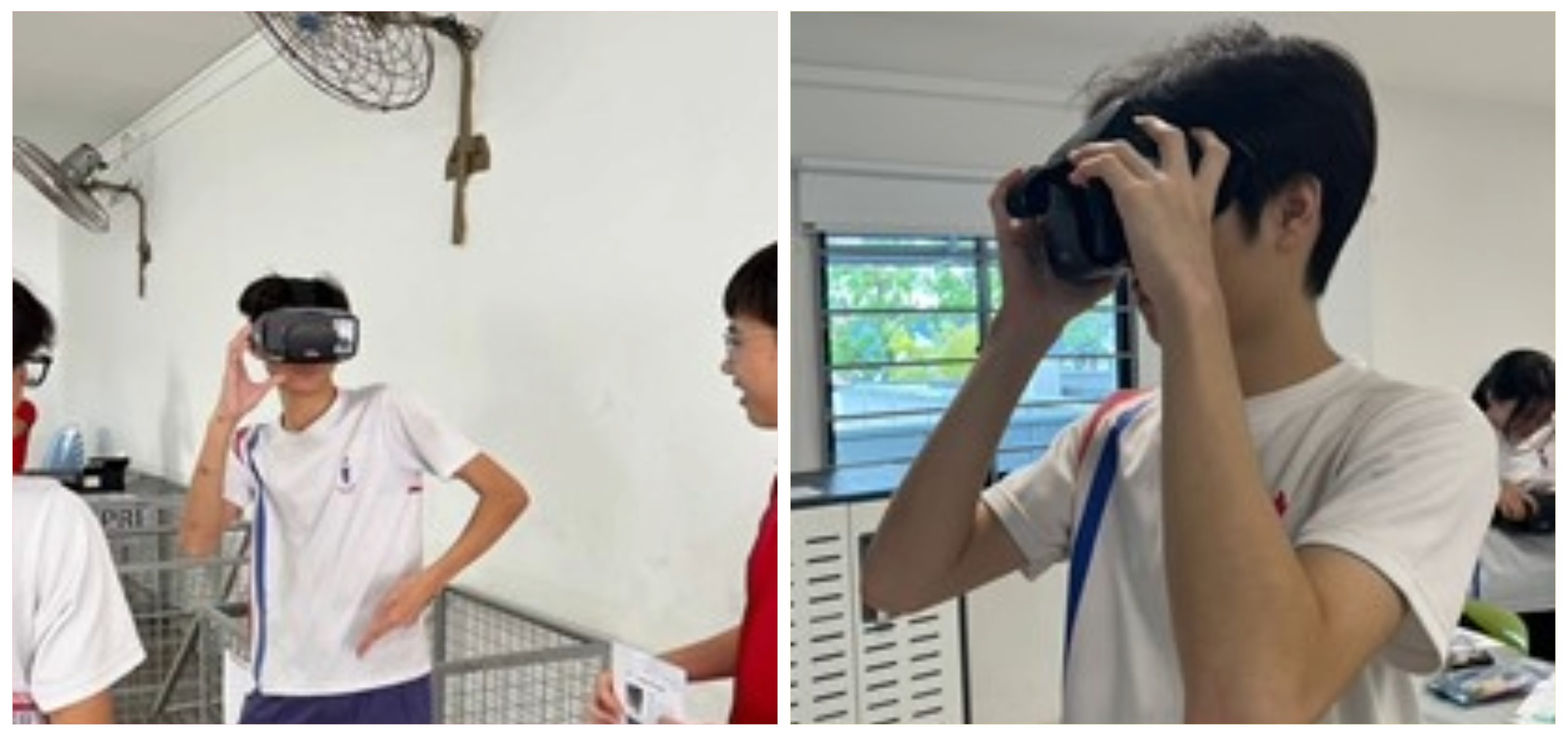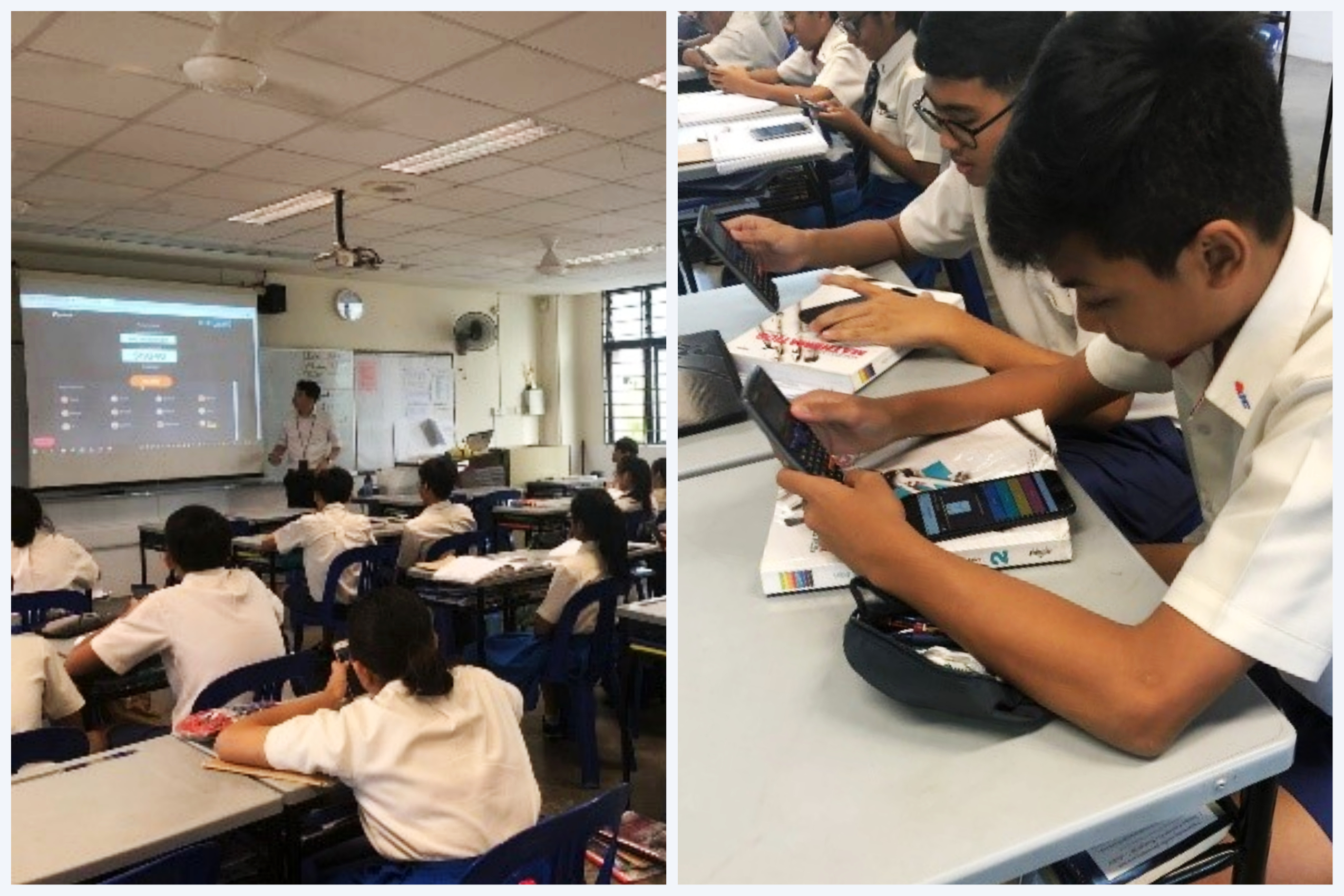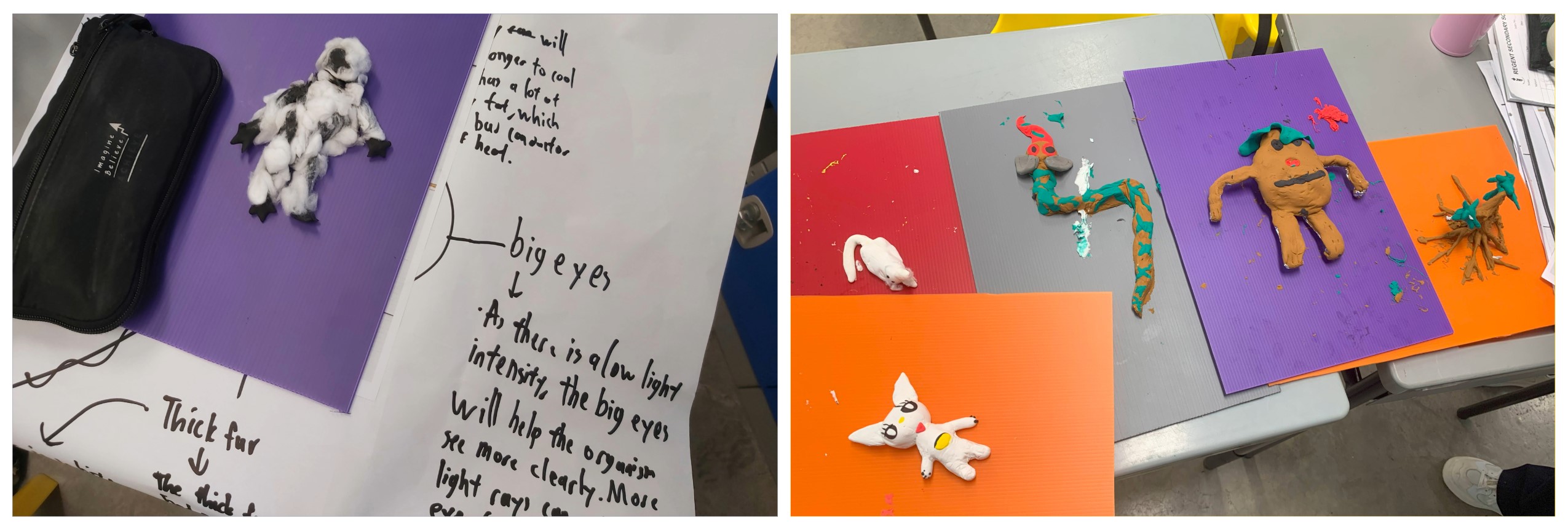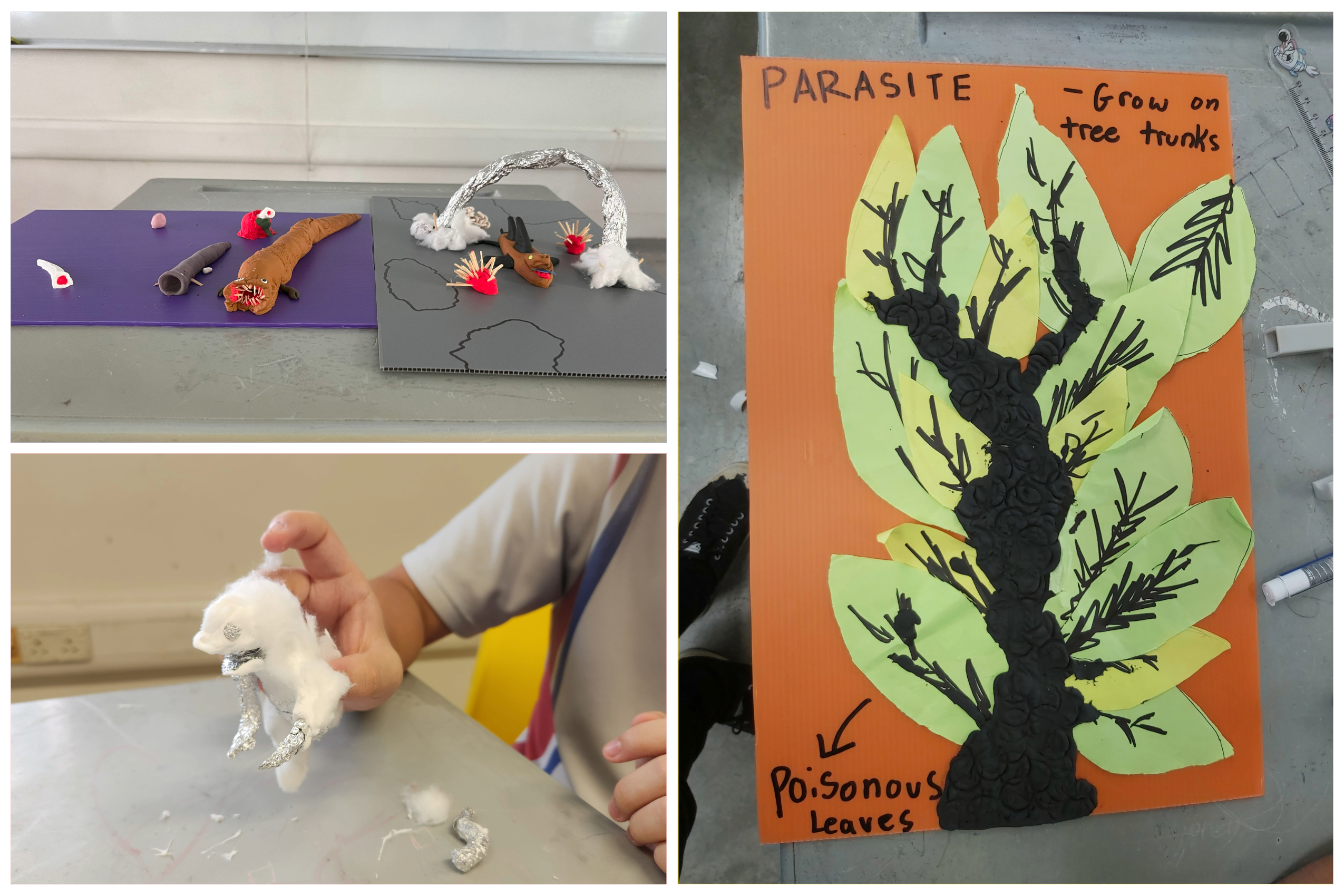Academic Programmes
Student Sign-Up Learning (SSUL)

In Regent, one of the ways students demonstrate self-directedness is by taking pride in their learning and actively approaching their teachers for consultation sessions to clarify their doubts through the Student Sign-Up Learning (SSUL) approach. Students will take the initiative to ask questions and monitor their progress in learning.

Enhancing Student Learning Experiences
Use of learner centred pedagogy creates opportunities for teachers to enhance our student learning experiences.
English Language Classroom

During English Language lessons, students use VR goggles to immerse themselves in exciting scenarios. They practice Oracy skills by narrating their virtual experiences of extreme sports like skydiving or surfing and improve writing by exploring virtual heritage tours to landmarks like the Eiffel Tower to craft their descriptive essays. This immersive approach makes learning engaging and practical.
Maths Classroom

Application of Trigonometric Ratios in Real-World Context
Students apply trigonometric ratios to solve problems situated in authentic real-world contexts, such as determining the height of a structure, calculating the distance between two points, or finding angles of elevation and depression. Through these applications, students develop an appreciation of how trigonometry is used in fields such as engineering, architecture, and navigation.
An online Assessment for Learning (AFL) tool is utilised to evaluate students’ understanding of trigonometric concepts. The quiz provides immediate feedback, enabling students to identify misconceptions, consolidate their learning, and demonstrate mastery of key skills in a self-directed manner.
Humanities Classroom
Our Humanities academic programmes in History, Social Studies, and Geography is dedicated to cultivating critical thinking by encouraging students to explore multiple perspectives through inquiry-based learning. We engage students in dynamic projects, learning journeys, thought-provoking discussions, and debates that challenge them to analyze and reflect deeply on historical events, societal issues, and geographical concepts. Through role-plays, presentations, and the integration of ICT tools, our students experience a vibrant learning environment that enhances their skills and prepares them for the complexities of a globalized world.

Lower Sec Science Classroom
Integrative Activities are infused into the curriculum as a culminating or capstone activity for a theme taught in the Lower Secondary Science Curriculum.


The intent is for students to experience the joy of conducting scientific inquiry through the thematic approach, generate ideas and solutions in contexts related to Science-Technology-Society and Environment and to participate in non-routine learning experiences on core ideas and practices of Science.

